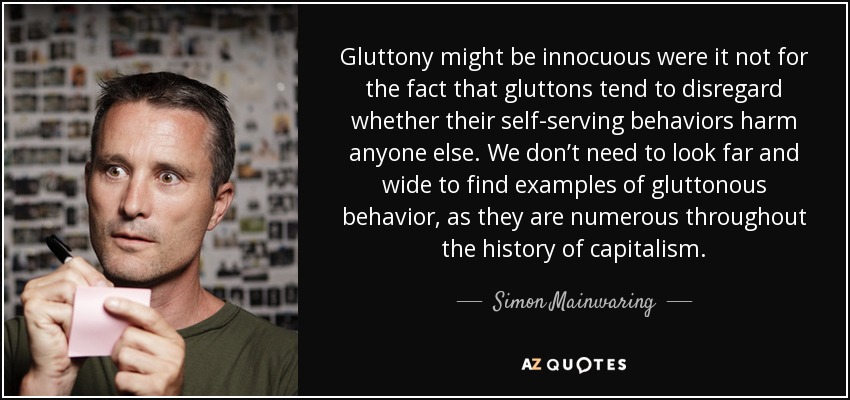One of 7 human deadly sins:
Holiday gluttony has negative consequences for both physical and mental well-being, as well as social interactions.
![GLUTTONY QUOTES [PAGE - 3] | A-Z Quotes](https://www.azquotes.com/picture-quotes/quote-in-love-as-in-gluttony-pleasure-is-a-matter-of-the-utmost-precision-italo-calvino-4-57-09.jpg)


However, addressing and overcoming gluttonous habits can lead to improved health, emotional well-being, and positive social outcomes. Adopting a balanced and moderate approach to eating is key to achieving these benefits. Here is how to navigate both the negative aspects (the "bad") and potential positive aspects (the "heal") associated with gluttony:
-
The Bad (Negative Aspects) of Gluttony: Gluttony refers to excessive and overindulgent consumption of food or drink. The negative consequences of gluttony can include:
- Health Issues: Overeating can lead to various health problems, including obesity, heart disease, diabetes, and digestive issues.
- Psychological Impact: Gluttony may contribute to guilt, anxiety, or other negative emotions, especially if it becomes a habitual behavior.
- Social Implications: Overindulgence can impact social interactions and relationships, as it may be perceived negatively by others.
-
The Heal (Potential Positive Aspects) of Addressing Gluttony: Addressing gluttony and adopting healthier eating habits can lead to several positive outcomes:
- Improved Health: Moderation in eating promotes better physical health, reducing the risk of obesity-related illnesses and improving overall well-being.
- Emotional Well-being: Developing a healthy relationship with food can positively impact mental health, reducing stress and promoting a more positive self-image.
- Social Harmony: Practicing moderation in consumption contributes to positive social interactions and can foster healthier relationships with friends and family.